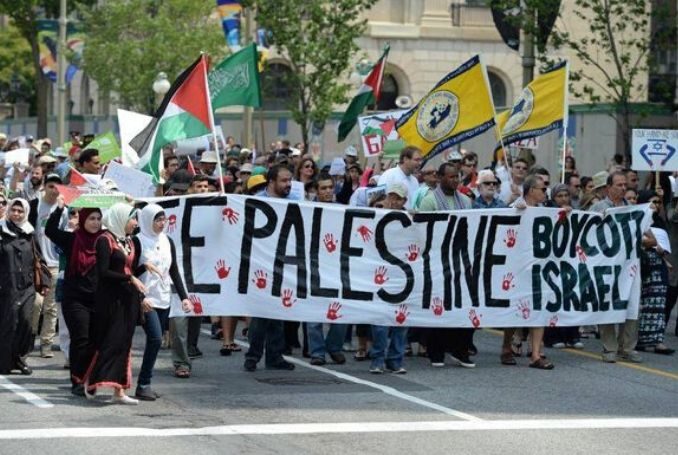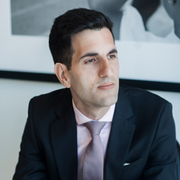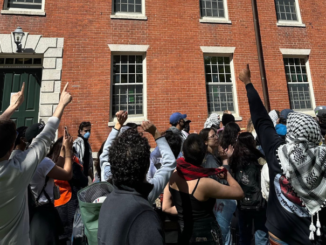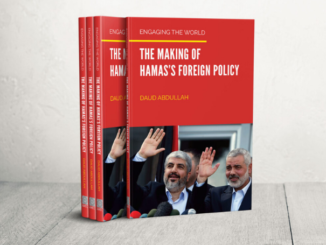
Recently I was sifting through an older video of Irwin Cotler, Canada’s Special Envoy on Preserving Holocaust Remembrance and Combatting Antisemitism. I was specifically looking for an observation he makes on the nature of calling someone a racist.
I eventually found it. Here’s what he says:
“Who can be against the struggle against racism? Indeed the worst thing you can say about anybody in the world today is to call them a racist. The very label supplies the indictment. No further proof is required. “
Before I go any further it’s important I clarify that I’m citing Cotler here not because I think he’s an exemplary anti-racist. He’s, as I and others have discussed elsewhere, quite the opposite, routinely denying the Nakba and a major apologist for the criminal Israeli state.
Admittedly however the observation he made has stuck with me. And I think it’s because, perhaps ironically, it represents what defenders of the criminal state routinely do—and unfairly—against Palestinian activists.
They smear them as “antisemitic.” To save face those rightfully defending Palestine are quick to dispel the charge. Often that’s done by having to repeat what should be obvious: criticism of the state of Israel, even in its harshest forms (e.g. condemning it for the ethnic cleansing of Palestine presently and historically), is not antisemitism and vice versa.
That we, as pro-Palestinian, still find ourselves in this position is symptomatic I believe of something larger in the culture, namely the lack of a mainstream discourse that captures the truth about Palestine. Zionists take advantage of that. Like Cotler, they know they can attack a critic of Israel as “antisemitic” and to many—especially as Israel has admittedly been successful (for decades) in branding itself as “Jewish” (and Jews that oppose it as “self-hating”)—that will seem like a plausible charge. This keeps us, as pro-Palestinians, in a perpetual cycle of having to respond to the charge and undermine it through the presentation of truth, facts, argument, etc.
It’s commonly discussed how this, resembling something of a spectacle, deflects attention away from the crimes of Israel. But it does something more, that all who care about Palestine and are involved in the struggle for Palestinian justice should take seriously: it siphons energy away from the point of that struggle. By this I mean dismantling the occupation, holding Israel legally accountable, ensuring Palestinians have the right to return to their homes and all the things that are materially—a word that here needs to be emphasized—necessary for justice to actually occur.
This should technically be the focus of Palestinian activism. However, in a society where, in significant part because of the above branding, much of the public mistakes criticism of Israel as antisemitism, Palestinian activists are forced constantly show that their grievance with the state is not tantamount to hatred.
This is obvious to Palestinian activists though not on the much larger scale it needs to be. It also doesn’t help that mainstream media tends to cover Palestine not primarily as subject to Israeli apartheid, confirmed by the thorough investigations of the United Nations and other human rights bodies, but involved in a “war” or “conflict” with Israel. This pushes the reality of Israeli apartheid itself away or, at best, the margins of public thought, making it easier for Israel to carry out its campaign of ethnic cleansing against Palestinians without protest
Speaking to this Yasmeen Abu-Laban and Abigail B. Bakan observe:
“In a classic feature of racial gaslighting…power inequity—as accorded in the designation of Israel as an apartheid state—is deliberately rendered unknowable. While the inequity is obvious and well-documented, it is also epistemically renounced, hidden and blurred. In this case, the inequity is between Jewish Israeli nationals and the state that protects and advances their interests in specific ways—where there are structured relations of superior economic, social, political and military power—and Palestinians. Palestine and Palestinian history are unrecognized or distorted in Western and Israeli educational curricula.”
In contrast, factual and empirical education, if offered throughout the West, eventually leads to a society empowered to know the truth about Palestine and the criminality exercised against it by the Israeli state. It is likewise one that confidently rejects preposterous claims that wanting or acting to stop such criminality (e.g. the international Boycott, Sanctions and Divestment movement) is antisemitic.
At some level the “logic” or mentality behind this is rather laughable. Israeli apologists who subscribe to it want people to effectively see those who genuinely care for the dignity, welfare and future of Palestine as somehow racist. A good education addresses this issue head on. No doubt it’s a serious one and I especially find it troubling as someone who used to teach classes on ethics and morality, including how certain desires corrode society’s moral integrity, where expressed or channeled into action. This includes Israeli apologists who attempt to dissuade others from fighting for Palestine and so effectively permitting greater (and egregious) harm in the world.
A responsible educator shows students how this can be countered, illuminating to them that being pro-Palestinian is a positive stance: opposition to settler-colonialism and imperial domination. The problem is not those who want to see it disappear but those who want to keep it alive.
This is often done through high-sounding rhetoric that disingenuously frames Israel as an “exemplary” state. Even where that works, so to speak, it doesn’t change facts on the ground. It rather reflects the power of rhetoric to deceive.
Here’s a case in point—the abstract for a paper that Cotler presented in 1999, at the International Conference on The Dynamics of Antisemitism in the Second Half of the 20th Century (Jerusalem):
“There is a clear symbolic—if not symbiotic—relationship between Israel, the United Nations, and human rights. For if the commitment underpinning the Genocide Convention is “never again,” then Israel is a state born of that commitment; and if the Universal Declaration of Human Rights was designed to be the Magna Carta of humankind, Israel was to be, in the words of its founders, “a right onto the nations”; if the Geneva Conventions of 1949 were to be commemorative of international humanitarian law, the genocide of European Jewry what is the paradigmatic basis for the “grave breaches” of the laws of war as set forth in the Geneva Convention.”
This may sound poetic. But it doesn’t capture the truth of Israel as a criminal state. Such truth becomes apparent only when we take seriously and appreciate what happens outside the head. Unlike Cotler we cannot operate at the level of idealism.
Israeli historian and pro-Palestinian activist, Ilan Pappe, is instructive here. As he observed during the 2008 Al-Awda Convention:
“We should focus our campaign [for Palestinian justice] on names and people and not be satisfied with vague concepts. We are not fighting something which we cannot see. …We are fighting people who are criminals. And we know their crimes. And we are going to be professionals about it. Not just emotional about it. …We should know the names of the victims. We should know the name of the location of where the crimes are being committed. We should appear, I think, to be very serious about it. And to tell people that like the Spanish judge who haunted [Augusto] Pinochet at every corner of Europe and tried to bring him to justice, we will haunt the people (behind Israeli criminality).
We want the names of the pilots who drop bombs on the Palestinians in Gaza Strip. We are not fighting the “Israeli Air Force”. …Nobody here knows the name of the Israeli commander of the Air Force but he’s an arch-criminal. You should know his name, as much as you should know the names of his victims if you want to succeed politically. It’s not enough to talk about Israel committing crimes. It’s like talking about America committing crime. It never moved anything.”
In a similar spirit we must, in solidarity with Palestine, fight to create discourse—that permeates the larger culture—about what Israel has been doing to the Palestinian people over time. Similar to Pappe’s observation we should not squander energies in abstract dialogue that has has little, if any, material connection to history, including the present moment. That’s where Israeli apologists want us to be. It’s where their false charge of antisemitism “makes sense.”
The more people see that Palestinian activism is fundamentally about ending state-sponsored criminality, the greater support it will gain. And those who harass us for it, if not held at least accountable, will be dismissed for what they are.
Liars.

– Paul Salvatori is a Toronto-based journalist, community worker and artist. Much of his work on Palestine involves public education, such as through his recently created interview series, “Palestine in Perspective” (The Dark Room Podcast), where he speaks with writers, scholars and activists. He contributed this article to The Palestine Chronicle.








